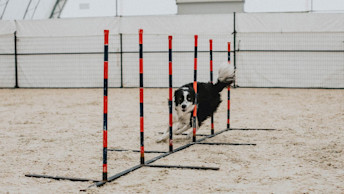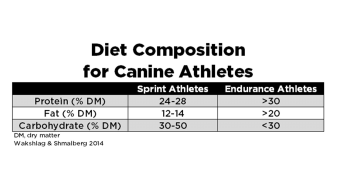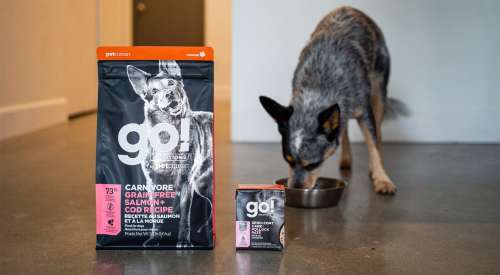August 23, 2021
Feeding Performance or Working Dogs: Myth vs Reality

Many pet parents today are getting their dogs involved in the various sports and activities available. From dock diving, agility, flyball and skijoring, there have been many theories over the years of the best way for feeding a working or performance dog. As a result, many myths about the best way to feed these active canines have developed. In this article, we'll break down everything you need to know about which is a myth and which is reality.
Myth # 1: Dogs don't need carbs
Reality: While dietary carbohydrates are not considered essential for dogs, carbs act as a quick energy source important for working and sport dogs. Moderate carbohydrate levels provide quick energy while allowing protein to be used for muscle function and repair. Dietary fibre, a carbohydrate, is also helpful in stabilizing gut motility in those hard-working dogs.
Myth # 2: High-fat levels in my working dog's food will make them overweight
Reality: Dog food containing high levels of fat supplies can more than double the calories of protein or carbohydrate and is a great way to provide the extra energy needed for endurance exercise! Additionally, dogs can utilize dietary fat for energy rather than depleting protein stores required for muscle maintenance and repair.
Myth # 3: My dog needs to eat before they work
Reality: The timing of your dog's meals is an essential factor to consider. Dogs who fast for 6 – 12 hours and up to 24 hours before exercise usually perform well as they can use energy stores from previous meals while avoiding having to work on a full stomach. Additionally, when dogs are fed 6 -12 hours before hard work, they use more carbs and fats than protein for energy, which helps maintain their muscle mass.
Myth # 4: My dog should eat immediately after exercising
Reality: Within 30 minutes after prolonged intensive work, feeding a carbohydrate supplement will help replenish your dog's energy stores in the liver and muscle. Regular feeding should occur after your dog shows signs of recovery from the exercise (e.g., heart rate and breathing return to normal). When hard-working dogs are fed properly post-exercise, the protein in their diet provides amino acids to help rebuild muscle.
Myth # 5: Choosing the right food is complicated
Reality: Dogs participating in endurance exercise need more energy and protein in their diet than dogs doing sprint-type exercise. The below chart shows the recommended diet composition for canine sprint and endurance athletes. If you prefer to feed a lower-fat diet for your endurance-trained dog, you can always supplement as needed to gain those extra calories!

Myth # 6: My dog must have lots of meat protein in its diet
Reality: As long as your dog receives a balanced diet that provides all of the essential amino acids and protein in the required amounts, the source of the protein doesn't matter. Dog's bodies don't distinguish between different sources of amino acids, so both plant and animal protein sources can be used to meet these requirements. However, it may be challenging to meet the higher protein requirements for working dogs using only plant-based proteins. Therefore, finding a balanced diet that works for your dog may take a little trial and error at first!
When it comes to feeding your performance or working dog, a premium diet that contains all the nutrients they need to stay healthy is essential. With our Go! Solutions Carnivore recipes for dogs, each batch is expertly formulated to help your dog develop strong and lean muscles. With added pre and probiotics, you can ensure your dog is getting the best for complete and balanced nutrition!
Wakshlag & Shmalberg. Nutrition for working and service dogs. Vet Clin North Am Small Anim Pract 2014;44:719-740, vi.


